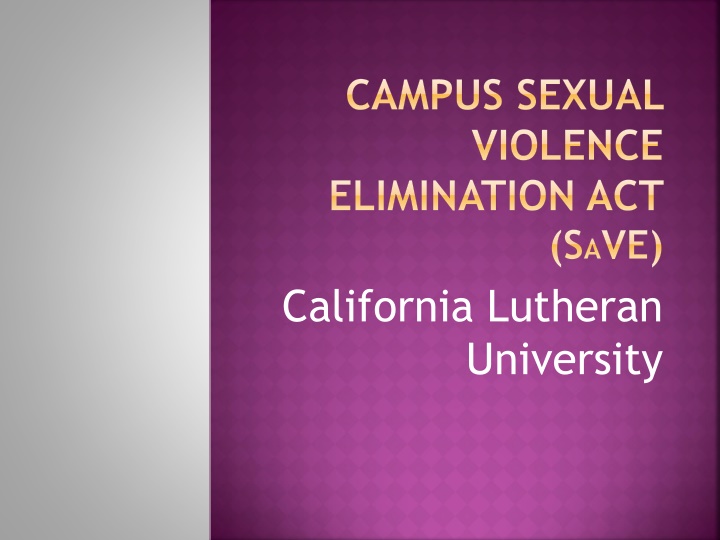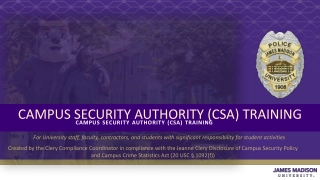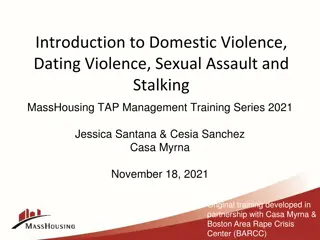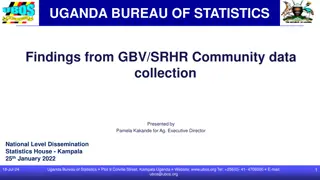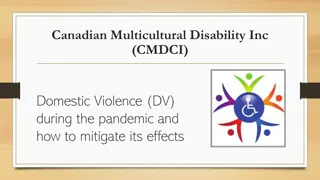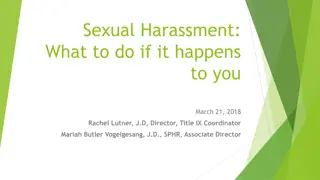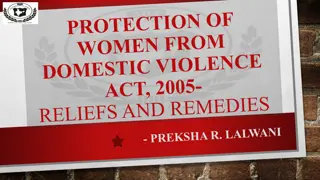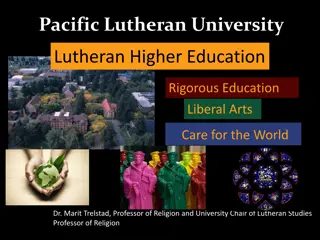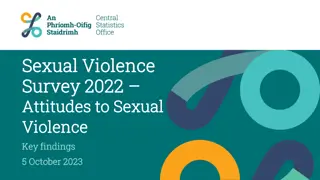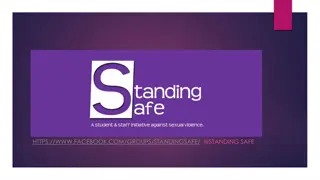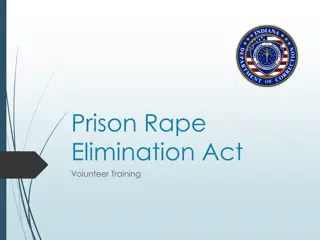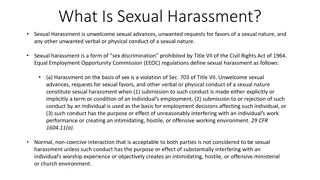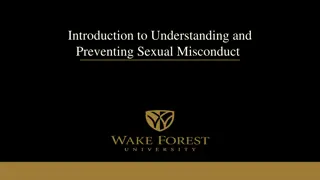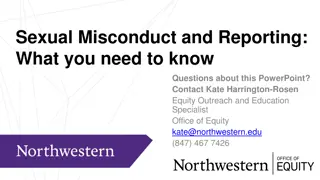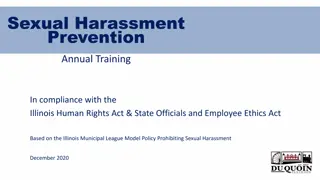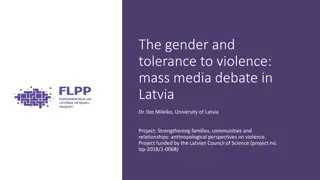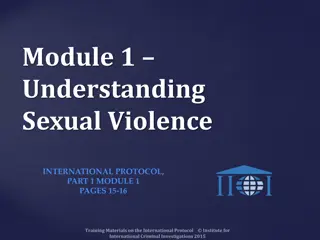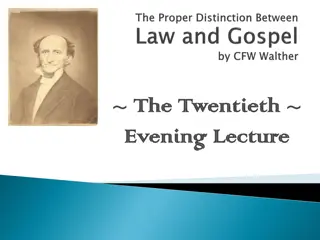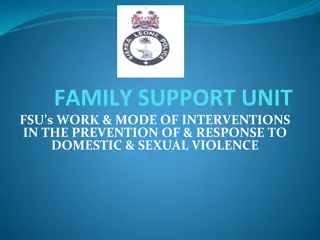Campus Sexual Violence Elimination Act (SAVE) at California Lutheran University
Campus Sexual Violence Elimination Act (SAVE) was passed in March 2013 as part of the Violence Against Women Reauthorization Act, impacting institutions of higher education like California Lutheran University (CLU). The act mandates CLU to educate its community on prevention/awareness of sexual violence, provide resources for victims, and ensure proper training of Campus Security Authorities. Definitions of sexual assault, dating violence, domestic violence, and stalking are also required under this act.
Download Presentation

Please find below an Image/Link to download the presentation.
The content on the website is provided AS IS for your information and personal use only. It may not be sold, licensed, or shared on other websites without obtaining consent from the author.If you encounter any issues during the download, it is possible that the publisher has removed the file from their server.
You are allowed to download the files provided on this website for personal or commercial use, subject to the condition that they are used lawfully. All files are the property of their respective owners.
The content on the website is provided AS IS for your information and personal use only. It may not be sold, licensed, or shared on other websites without obtaining consent from the author.
E N D
Presentation Transcript
CAMPUS SEXUAL VIOLENCE ELIMINATION ACT (SAVE) California Lutheran University
CAMPUS SEXUAL VIOLENCE ELIMINATION ACT Passed March 2013 as part of the Violence Against Women Reauthorization Act Applies to almost all institutions of higher education Amends the Jeanne Clery Disclosure of Campus Security Policy and Campus Crime Statistics Act (Clery Act) Added domestic and dating violence and stalking to what must be reported Expands hate crimes to those based on gender and national origin bias
The Act Requires CLU to: educate students, faculty, and staff on the prevention/awareness of rape, acquaintance rape, sexual assault, dating and domestic violence, and stalking provide information on what to do and where to find available resources if you are a victim, witness, or official of CLU The act resulted in CLU creating the Sexual Violence Resource Packet that is available on the CLU website ensure Campus Security Authorities and Mandatory Reporters under Title IX are trained and their identity known to the campus community
DEFINITIONS The Act Requires CLU to define: Sexual Assault Dating Violence Domestic Violence Stalking
SEXUAL ASSAULT Sexual Assault occurs when sexual contact is non-consensual. NO/STOP means NO consent. Consensual: an individual is a willing participant in the sex act. Non-consensual: An individual is unable to give consent if: incapacitated by the influence of drugs or alcohol suffer from a mental or physical disorder that makes them incapable of offering consent acting under threats, duress or force NOTE: Consent to sexual contact is not implied because of prior consent, and a relationship between partners, such a marriage or formal dating relationship, does not imply or create consent for sexual contact.
DATING VIOLENCE Dating Violence is violence committed by a person: who is or has been in a social relationship of a romantic or intimate nature with the victim; and where the existence of such a relationship shall be determined based on consideration of the following factors: Length of the relationship Type of relationship; frequency of interaction between the parties
DOMESTIC VIOLENCE Domestic Violence includes crimes of violence committed by a current or former spouse of the victim, or by a person with whom the victim shares a child in common who is or has cohabitated with the victim as a spouse who is similarly situated to a spouse of the victim under the domestic or family violence laws receiving grant monies or is protected under the domestic or family violence laws or by any other person against an adult or youth victim who is protected from that person s acts by domestic or family violence laws.
STALKING Stalking is engaging in a course of conduct directed at a specific person that would cause a reasonable person to: fear for his or her safety or the safety of others, or suffer substantial emotional distress. Stalking can be part of dating and domestic violence. An actual threat of violence does not need to be made for the conduct to be stalking.
SEXUAL ASSAULT, DATING AND DOMESTIC VIOLENCE, AND STALKING Are crimes by state definition Have silent victims, such as family, friends, neighbors, and employers Benefit from intervention and may require intervention to end Involve some form of mental abuse Are prohibited by California Lutheran University policy
PREVENTION AND AWARENESS What are signs to look for, as a victim or observer, that may be found in the perpetrator: Extreme Jealousy Signs the perpetrator s insecurity Over possessive, checking on whereabouts constantly or calling the victim several times a day at inappropriate hours Keeping the victim from maintaining friendships with others Overly controlling of the victims activities and behavior Controlling Behavior Anger when not knowing where victim has been or is home late Start to question the victim; restricting privileges such as access to a car, money or phone
PREVENTION AND AWARENESS CONTINUED Perpetrator becomes quickly involvement with victim and Needs the victim for self-assurance and validation Needs a relationship with someone who makes them feel loved and will be loyal to them Only knew the victim for a few months before the start of a serious relationship Unrealistic Expectations Perpetrator wants victim to be perfect Compares relationship to those in movies and blames victim if expectations not met Victim expected to change anything about self that perpetrator sees fit.
INTERVENTION If you are an observer there are things you can do: Call 9-1-1 if you observe an assault or battery in progress; be a good witness Yelling or calling out may stop the incident; need to look at the environment you are in when interveining On the CLU Campus, notify Campus Safety after calling 9- 1-1 If you are aware of a sexual assault, dating or domestic violence, or stalking on the CLU Campus, notify Campus Safety immediately Let the victim know you are there to help and provide support Know what resources are available to the victim
IF YOU ARE A VICTIM Let your friends and family help you Confide in someone you trust Share with someone who can support you through the process of getting help Make decisions based on your comfort level Call the police or sheriff for assistance and resources Seek Professional Assistance Develop a personal safety plan Family and friends who can offer shelter What I will need to have with me Taking your children Whether it occurs on or off campus, CLU has a resource package available to assist you.
CAMPUS SECURITY AUTHORITIES (CSA) Definition: Any official of CLU who has significant responsibility for student and campus activities, including, but not limited to, student housing, student discipline, and campus judicial proceedings. This is important to know as you may not currently be a CSA but you may be in the future.
WHO ARE CLUS CAMPUS SECURITY AUTHORITIES Campus Safety Staff Vice President of Student Affairs/Dean of Students Director of Student Life Director of Health Services Director of Multicultural and International Programs Director of Counseling Services Campus Ministries when acting as an advisor or overseer of student clubs or organizations Human Resources Residence Life and Residence Hall Staff Department Deans or other senior student administrative personnel Coaches and assistant coaches Overseers and advisors to student clubs and organizations and other campus officials who have "significant responsibility for student and campus activities . These include: student housing, student discipline and campus judicial proceedings.
WHAT MUST BE REPORTED The following crimes must be reported by Campus Security Authorities Murder/non-negligent manslaughter Negligent manslaughter Rape Burglary Robbery Aggravated assault Motor Vehicle Theft Arson Hate Crimes Non-Forcible Sex Offenses (statutory rape and incest only)* Forcible Sex Offenses (sodomy, rape, rape with a foreign object, forcible fondling, sexual battery/assault) Any liquor law violations and/or arrests Any drug or narcotics violations and/or arrests Stalking Dating Violence Domestic Violence
REPORT IF THESE OCCUR: On a CLU Campus In or on non-campus building or property owned or controlled by CLU Public property within or immediately adjacent to our campuses (sidewalk/street) Provide the following details when reporting: Date it occurred Location it occurred Brief description of the incident Confidentiality: CLU MUST protect victim s identity if the victim so requests.
TITLE IX MANDATORY REPORTERS Definition: Title IX prohibits discrimination on the basis of sex in any federally funded education program or activity. Sexual harassment, which includes sexual violence (assault, stalking, domestic and dating violence, rape) is considered a form of sex discrimination. Title IX requires CLU to: Act to end the discrimination Act to prevent its recurrence Remedy its effects on the victim and the CLU community
WHO TO REPORT TO Title IX Violations To Title IX Coordinator for CLU, Dr. Juanita Hall (805) 493-3951. PLTS student: Director of Formation and Student Life (510) 559-2737. CLU student: Vice President for Student Affairs and Dean of Students, the Associate Dean of Students, or a member of the Student Conduct professional staff. (805) 493-3302. CLU faculty: Provost and Vice President for Academic Affairs. (805) 493-3145. CLU administrator or staff: Assistant Vice President for Human Resources. (805) 493-3183. Non-CLU persons: Campus Safety. (805) 493-3911.
REMEMBER Campus Security Authorities must report based on location Title IX mandatory reporters must report based on discrimination Both must report: Rape Sexual offenses other than rape Hate Crimes (if under Title IX) Stalking (if under Title IX) Dating Violence Domestic Violence
SEXUAL VIOLENCE RESOURCE PACKAGE CAN BE DOWNLOADED FROM THESE WEBSITES Campus Safety Human Resources CARE Student Life/Res Life Student Life/Judicial Affairs
IF YOU HAVE ANY QUESTIONS, CONTACT CAMPUS SAFETY AT (805) 493-3208
